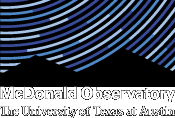West Texas Communities Protect Night Skies; McDonald Observatory Hosts Dark Skies Town Hall Aug. 12
FORT DAVIS, Texas — The dark skies of far West Texas may soon get even darker, thanks to commitments from communities in the region to reduce light pollution. McDonald Observatory wishes to thank the counties and municipalities in the proposed Greater Big Bend International Dark Sky Reserve; all have now adopted new outdoor lighting ordinances. These are Brewster, Jeff Davis, Presidio, and Reeves counties, and the cities of Alpine, Balmorhea, Marfa, Presidio, and Valentine.

